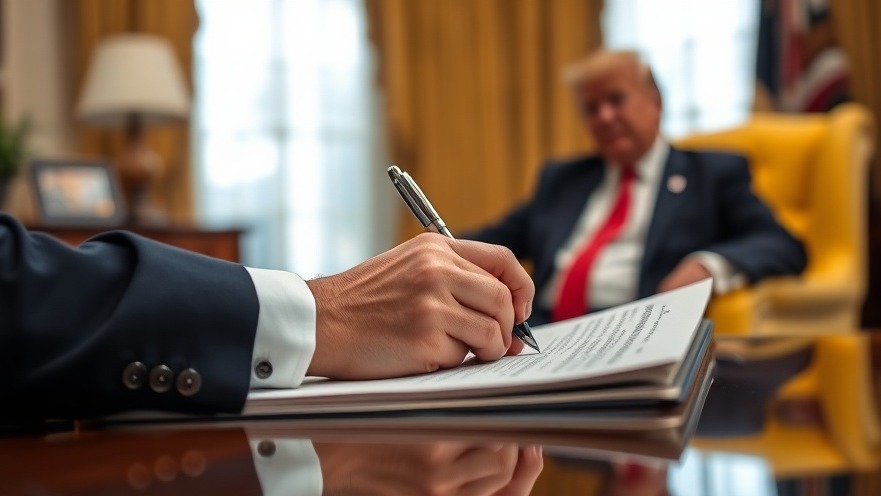
Understanding Trump's New Directives and Their Legal Ramifications
President Donald Trump’s recent executive orders signify a substantial re-engineering of various governmental operations in the United States. These directives aim to reshape several federal agencies and their functions, drawing considerable attention and criticism.
Court Challenges: A Barrier to Executive Overreach
In recent weeks, the Trump administration has faced a slew of legal challenges from multiple fronts aimed at halting or modifying these sweeping changes. Federal judges are becoming increasingly active in their opposition to many of Trump's policies, reflecting a critical balance of power as courts step in during a period where executive actions appear unfettered.
One case that received significant attention involved halting cuts to NIH funding for medical research. With 22 states engaging in legal action against these funding cuts, courts swiftly responded, indicating a growing trend where judicial intervention seeks to preserve established norms and practices against executive missteps.
The Social Impact of Trump's Policies
Many of Trump's directives are not merely administrative but carry heavy social implications. For instance, the proposed changes regarding how agencies like the U.S. Agency for International Development operate could significantly affect humanitarian efforts abroad. Critics argue that these moves are not just bureaucratic, raising questions about accountability and the ethical dimensions of governance.
Public Perception and Political Ramifications
Public reaction to the Trump administration's directives has been mixed. While some supporters see these changes as necessary for a more efficient government, opponents highlight a potential erosion of democratic norms and public services. Legal analysts point out that the sheer number of lawsuits targeting Trump's actions indicates both opposition and a mobilization of civic engagement to counter perceived overreach.
Future Predictions: Courts as Safeguards
The ongoing legal battles suggest that as the Trump administration pushes further into controversial policy territory, the judiciary will act as a crucial check on executive power. Particularly in an environment ripe with partisan divisions, this could establish a new playbook for how future administrations may operate within the bounds of law and public interest.
As developments unfold, it becomes essential for citizens to remain informed and engaged. The implications of these legal challenges extend beyond the courtroom; they reflect on how governance operates in contemporary American society. Each ruling not only shapes current policy but also sets precedent for future actions yet to come.
 Add Row
Add Row  Add
Add 




Write A Comment